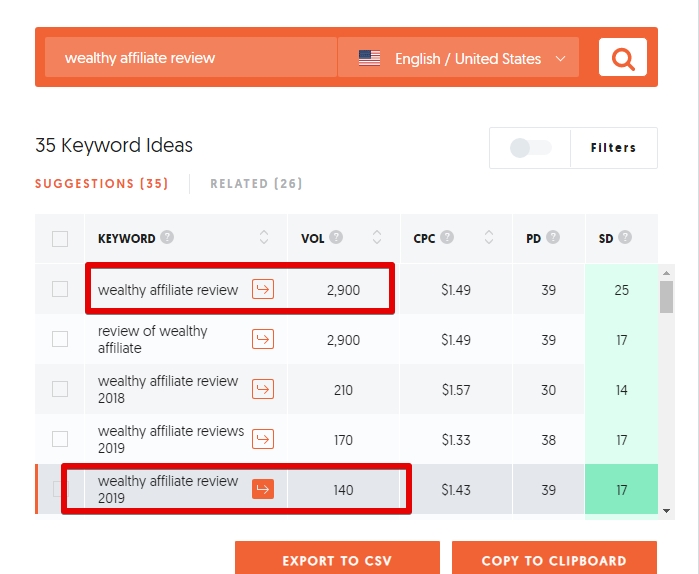Ranking for long-tail keywords is a dream come true for small affiliate niche sites.
And it’s no wonder why.
Long-tail traffic is converting traffic and getting ranked for thousands of long tails sending you thousands of visitors means having is a full-time business on your hands.
If you want that kind of business for yourself, you should keep reading as I’m about to reveal the secrets of effective long-tail keyword usage.
So, I won’t be talking about keyword research per se, because keyword research tips you can find on other blogs; but keyword usage hacks is a unique concept here on Vishwajeet’s super blog.
What are Long Tail keywords and why are they so important?
People search in Google all the time. When they do they use three types of keywords:
- Short, head keywords (coffee)
- Mid tail keywords (buy coffee now)
- Long-tail keywords (how can I buy coffee on Amazon?)
As you can see from the example above, long-tail keywords are so-called because they have long tails, and their tails are made up of extra words/keywords
Longtails are wordy, but that’s not their only characteristic.
They also bring traffic that’s:
a) Engaged and informed
People searching for “Where can I buy coffee on Amazon” know what coffee is; know they want it and already have their credit card in their hands, eager to buy RIGHT NOW.
If you were an online coffee website you’d want them to go through your affiliate links.
b) Easily converting
Because these users are so far ahead in their buyer cycle, they are pretty easy to convert into buyers.
In fact, I think 99% of all converting organic traffic on the web comes from long-tail keywords, whereas head terms like “coffee” almost never convert, despite receiving massive traffic hits.
c) Is abundant
Most keywords online are long tails, and even tough each brings in paltry traffic compared to head terms, combined, they are searched for much more than both head terms and mid-tail terms combined.

So it makes all the sense in the world to target them and below you will learn exactly how.
2 ways to use long-tail keywords to boost your traffic
The two ways are:
- sprinkling them within your content where it makes sense
- targeting them with strong on-page SEO and writing whole articles based on them
It’s simple.
How you use long-tail keywords is based on how popular the keyword is and how well it fits with the article you’re writing.
For example:
if a keyword gets searched 35 times per month, then it doesn’t make sense to write a whole article around that phrase.
However, it does make sense to include it once in verbatim within your article, because, when you include it Google will index your site under that phrase in their SERP’s and then over time you might rank for it passively.
Also, it depends on the article you’re writing. Some keywords will feel out of place whatever you do and it’s best not to include them as you don’t want to produce keyword-stuffed articles.
Unreadable stuffed articles don’t translate into good Google rankings!
#2-Targeting the keyword head on
This is a basic article writing.
Whenever you write an article you target a keyword you wanna rank for, right?
Makes total sense.
For example:
When Vishwajeet wrote about affiliate marketing in this article, he targeted the keywords “what is affiliate marketing” and “how to make money with affiliate marketing”
These are nice longish terms, that his site has a realistic chance to rank for,
Another great example is my Jaaxy keyword tool review I targeted a long tail phrase “Wealthy Affiliate keyword tool” and sure enough, my site ranks number one for it.
Actually, I’m second because the page from Wealthy Affiliate’s domain is number #1. It’ll be hard to beat it because Google obviously considers it more relevant than my page.
Because they have Wealthy Affiliate in their domain name…

However, smart long-tail keyword usage is not all I did. I also performed some sound on-page SEO magic and boosted the article’s relevancy to the brim.
That’s why I rank so high, and I did in less than three months no less.
Note: if you want to rank without backlinks, it is possible for long-tail terms, and the key is to boost relevancy as much as possible.
Vishwajeet’s blog hosts an excellent guide you should read to learn more about it.
How to decide which keyword to sprinkle in, and which to write a whole article about?
Use a free tool called UberSuggest
This tool scrapes Google Search and gives voluminous data on what people really search for, and these are mostly long-tail keywords.
So, pick the ones you and that make sends for your blog, and then sort them based on search volume.
For example when I search for “Wealthy Affiliate Review”, (Note: they’re a training program for newbie marketers. They infected me with the bug called internet marketing);

I can see that the term “Wealthy Affiliate Review” has a nice keyword volume and is good to write an article about.
While the keyword “wealthy affiliate review 2019” is also good but with smaller traffic numbers. So that keyword is not a good fit for an entire article, but should still be included in verbatim within the review, as a section under the article subheading.
There you go, I covered here the rarely-talked-about aspect of long-tail keywords.
Everyone knows that you should target them, but rarely a blog recommends HOW exactly to target them for maximum benefit.
Because you really don’t want to write an article around a keyword that gets 3 searches per month.
Then, even if you rank #1 you’ll still get about only 1 visitor every 6 months.
A waste of time for you.
Now to conclude the article properly…
Conclusion
Long-tail keywords.
Go after them. Target them with strategy and intelligence, the ways I showed you in this article, and see your traffic grow; and grow; and grow.
Authority is built over time but this is the easiest way to get a head start over everyone else.
Have Questions?
Shoot them below,
thank you:)

Hi Nikola,
Ubersuggest has become my #1 keyword research tool. And I ‘d recommend it to anyone else. It helps you generate related long-taik search terms that can rank your site significantly.
Thank you sharing!
Thanks Moss,
I like Ubersuggest too. Earlier it was pretty crappy. But Neil has improved it so much now that it rivals the paid tools.